| Reviews & Columns |
|
Reviews DVD TV on DVD Blu-ray 4K UHD International DVDs In Theaters Reviews by Studio Video Games Features Collector Series DVDs Easter Egg Database Interviews DVD Talk Radio Feature Articles Columns Anime Talk DVD Savant Horror DVDs The M.O.D. Squad Art House HD Talk Silent DVD
|
DVD Talk Forum |
|
|
| Resources |
|
DVD Price Search Customer Service #'s RCE Info Links |
|
Columns
|
|
|
Lindbergh Kidnapping Case (1976, Sony Choice Collection), The
Case in point: don't trust your memories. Sony Picture's Choice Collection line of hard-to-find cult and library titles has released The Lindbergh Kidnapping Case, the 1976 NBC made-for-TV movie starring Cliff De Young, Anthony Hopkins, David Spielberg, Joseph Cotton, Sian Barbara Allen, Martin Balsam, Peter Donat, Denise Alexander, Dean Jagger, Laurence Luckinbill, Keenan Wynn, Walter Pidgeon, Tony Roberts, and Katherine Woodville. What I remembered as one of the best MTVs of the 70s turned out to be a major disappointment revisited some 38 years later, hampered by a choppy script, flat direction, and some, um... questionable thesping (you already know to whom I'm referring). No extras for this nice fullscreen transfer.
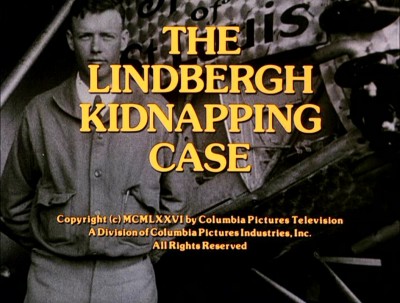
According to the fictionalized The Lindbergh Kidnapping Case, on the night of March 1, 1932, the "Crime of the Century" was committed when little 20-month-old Charles Lindbergh, Jr., the first-born son of America's "Lone Eagle," Charles Lindbergh (Cliff De Young) and his wife and fellow aviator, Anne Morrow Lindbergh (Sian Barbara Allen), was silently snatched from his bed on the second floor of the Lindbergh's home in rural East Amwell, New Jersey. A ransom note for $50,000 was found, marked by a distinctive symbol at the bottom. Family friend and head of the New Jersey State Police, Colonel H. Norman Schwarzkopf (Peter Donat) headed up the investigation, with the help of Mr. Koehler (Dean Jagger) of the Forestry Service, who was particularly interested in the crude wooden ladder that was found near the Lindbergh house. Quickly, the crime was overrun by curious onlookers and a frenzied press, beginning a years-long fascination between the American public and the heinous crime. Meanwhile, in the Bronx, educator and ardent patriot Dr. Joseph Francis Condon (Joseph Cotton), inserted himself into the dramatic events, offering himself, via a letter to the editor for The Bronx Home News newspaper, as a conduit for the kidnapper(s)' demands.
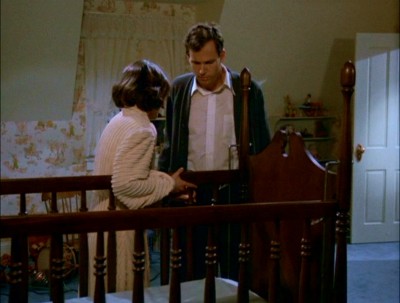
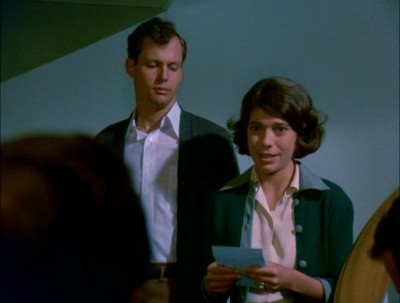
Soon, he was contacted, and the letters he received were authenticated by Lindbergh, who believed Condon innocent of any involvement with the kidnappers. Eventually, the ransom money was paid, with Dr. Condon meeting (in the shadows) "John," one of the kidnappers who claimed the baby was alive. However, the directions given to Condon and Lindbergh were false, and two months after the kidnapping, the decomposed body of Charles, Jr., his small skull crushed by a massive blow, was found in the woods near the Lindbergh home. With no leads, New York City police detective Lieutenant Jim Finn (Tony Roberts), working with psychiatrist Dr. Schonfeld (Joseph Stern), eventually traced some of the marked ransom money to illegal alien Bruno Richard Hauptmann (Anthony Hopkins), a German national. When $14,000 of the ransom money was found at his house, along with floorboards that precisely matched the crude ladder used in the kidnapping, he was arrested and tried for murder. New Jersey Republican Governor Hal Hoffman (Laurence Luckinbill) ignored the sound political advice of friend Fred Huisache (Keenan Wynn), and allowed Democrat State Attorney General David Wilentz (David Spielberg) to personally prosecute the murder trial--a trial that turned into a public circus as the unscrupulous press and the blood-thirsty public screamed for Hauptmann's head.
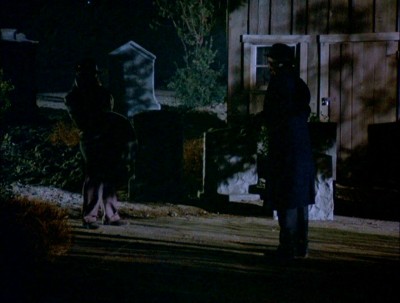
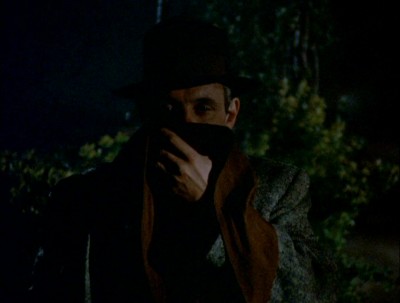
I haven't seen The Lindbergh Kidnapping Case since it first aired on NBC back in 1976, but I never forgot it. Recalling it as an involved, taut account of the Lindbergh baby murder, anchored by, as I recollected, an intense performance by Anthony Hopkins, The Lindbergh Kidnapping Case ranked right up there in my memories with other great true-crime network made-for-TV movies from that period, including The Marcus-Nelson Murders, the brilliant The Legend of Lizzie Borden, Foster and Laurie, Guilty or Innocent: The Sam Sheppard Murder Case (which we'll probably never see, since recalcitrant Universal seems to be a most reluctant hold-out for releasing its rarities and more obscure library titles on M.O.D. DVDs), and of course, Helter Skelter, which aired the same year as The Lindbergh Kidnapping Case (and which was written by the same scribe, J.P. Miller). Sadly, in one of those depressing instances that all movie and TV lovers can relate to, what remained from a childhood memory...didn't exactly match up with what I was watching some 38 years later. While Marcus-Nelson and particularly Helter Skelter (a brilliant exercise in the long-form true-crime MTV genre) still play remarkably well today, The Lindbergh Kidnapping Case's herky-jerky construction, diffused message (if it even has one), and iffy thesping all conspire for a surprisingly lackluster, ineffectual effort.
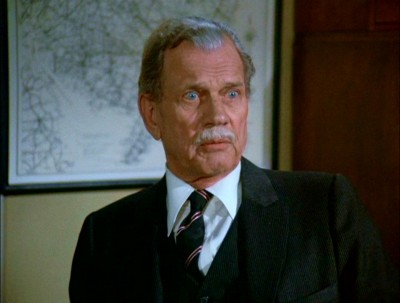
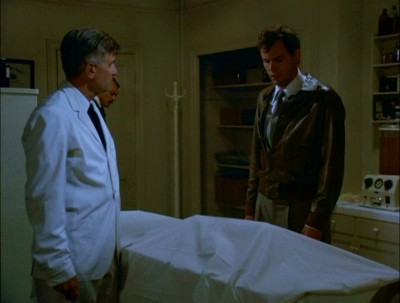
I'm certainly no expert in the Lindbergh kidnapping/murder case, but from what I've read over the years, there's still quite a bit of controversy over almost all aspects of the crime, the investigation, and the subsequent trial and execution of Bruno Hauptmann (for my money: guilty...but he didn't work alone). Even though a suspect was eventually brought to justice and convicted of the crime, paying for it with his life, there's an air of unresolved skepticism about the terrible event, no doubt owing to the sensationalistic aspects of the case--the god-like celebrity status of America's "Lone Eagle," "Lucky Lindy," the horrific nature of the toddler's murder, and the circus-like atmosphere that marked the investigation and trial--that somehow keeps it in the "unsolved" column in most people's minds. As with almost all Hollywood biopics or "true life" TV movies, anyone looking to watch The Lindbergh Kidnapping Case as a historical document on the case will find much here omitted or outright changed--an accepted convention of the genre that still seems to trip-up too many serious-minded critics and historians who forget they're watching first and foremost an "entertainment," not a doctoral dissertation.
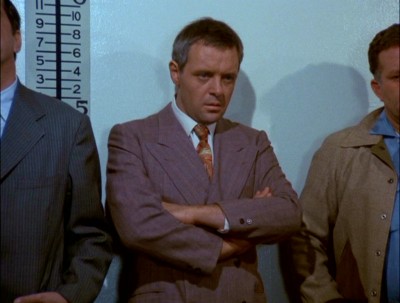
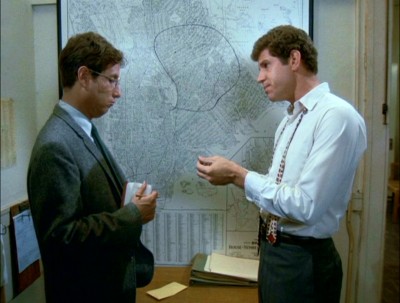
So, leaving out details of the investigation (squeaky-clean Lindbergh worked with underworld figures to try and find his child, for instance), or compositing real-life participants into fictional characters for dramatic license, doesn't effect how "good" or "bad" The Lindbergh Kidnapping Case is in the end. Only if what it says about the case is meaningful or not, and if it's artfully (or at least entertainingly) put over or not, are the only criteria really needed to judge The Lindbergh Kidnapping Case a success...or not. And going by those two gauges, The Lindbergh Kidnapping Case fails. Scripted by J.P. Miller (The Young Savages, The Days of Wine and Roses, the superior Helter Skelter), The Lindbergh Kidnapping Case starts off weakly with the discovery that little Charles Lindbergh, Jr. is already missing...and never really recovers. We need to feel the outrage and violation of the sanctity of the Lindbergh home, and the horror of seeing an innocent, sleeping child being snatched from the safety of its bed, to become fully engaged in the subsequent two and a half hour investigation and trial (this element of detachment on the viewer's part is necessarily increased by the portrayal of the Lindbergh parents as remarkably controlled individuals; at one point they both assert they're unafraid for their child...and we believe them). Leaving "open" what happened to Charles, Jr. is a cop-out the script doesn't take in determining Bruno's guilt or innocence--that's clearly Hopkins as the mysterious "John" at the cemetery meet. So not grabbing the viewer emotionally right at the beginning of this long movie lends to the proceedings a chilly aloofness that's off-putting and distancing (that reserve is amplified by the surprisingly flat, uninvolved directorial effort here of Buzz Kulik, a pro at this sort of thing, whose work on the small screen--excellent MTVs like Vanished, Brian's Song, Bad Ronald, Crawlspace, and Babe--outpaced his few big screen forays like Villa Rides, Riot, and Shamus).
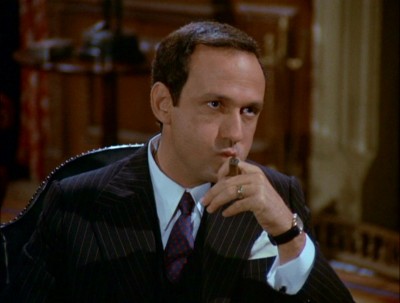
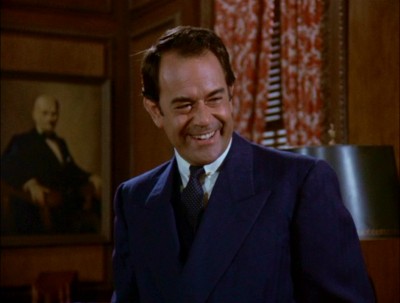
Sloppy exposition--whether a factor found originally in Miller's script or subsequently created in post, perhaps due to cutting the movie down for broadcast?--doesn't exactly help us navigate this long, complicated story, either. When Dean Jagger shows up at the crime scene and announces he's from the Forestry Department...I wanted to know how the hell he came to be involved. But no dice. Why does the movie continue a running gag of seeing defense attorney Balsam arriving at a restaurant with a different woman each week that he introduces as his "wife," when we have zero context for this seemingly superfluous detail? If it's important to the story, or for filling out his character, then tell me why. I assume they're showing an German American Bund meeting at one point in the movie, with Nazis extolling the innocence of Hauptmann...but no subtitles and no context for this particular scene render it completely meaningless to us. Why do we get Joseph Stern's Dr. Schonfeld character's assertions that the kidnapper wishes to destroy Lindbergh and assume his celebrity and importance and power...when the rest of the movie truly isn't interested in exploring any reason why Hauptmann would kidnap the child?
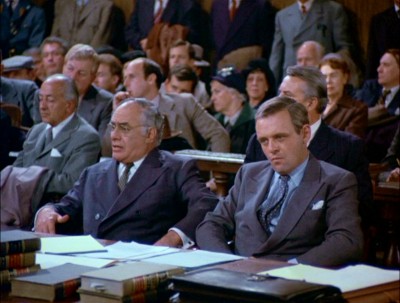
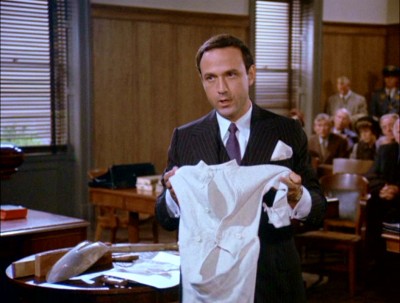
Too many "tidbit commentary" scenes like those pop up in The Lindbergh Kidnapping Case, sans any meaningful framework or perspective. Two important themes scripter Miller seems to want illuminate--the dishonesty and crassness of the press, and the howling mob mentality of the public--are instead used as inconsequential filler inbetween the main leads' big scenes. Yes, the press treated this murder investigation and trial like a circus, and yes, some of the local public were vulgar in their curiosity over the crime. However, Miller's scenes illustrating those problems are as facile and generalized as my one-sentence description of them above. The press reporters are portrayed to a man as jackals who will breach any rule of decency to get a story...but why, exactly, is that important to the story here? How does it fit in and contrast in a meaningful way? For example, why wasn't something made between the inherent indecency of these news hounds, and Lindy's preternatural, almost regal air of moral superiority (at least that's the way he's portrayed here...history has recently shown otherwise...). The "public" is shown in no better light, and in as just a superficial manner, with not one redeeming civilian shown to represent the vast majority of normal Americans who weren't ghouls looking to snatch a button off Lindy...but who were genuinely agonized over what happened to their national hero's baby (again, without the toddler made "real" here, the movie loses its core and becomes hollowed out). Miller's view of the public is as a faceless mob of yokels grasping at anything sensationalistic--a cliched viewpoint to start with, and cheap, easy dramatic short-hand as employed in The Lindbergh Kidnapping Case.
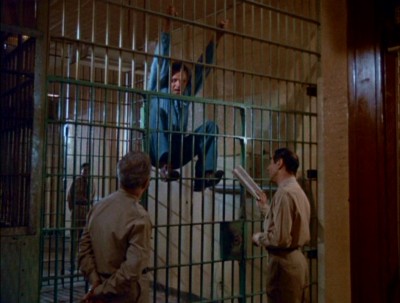
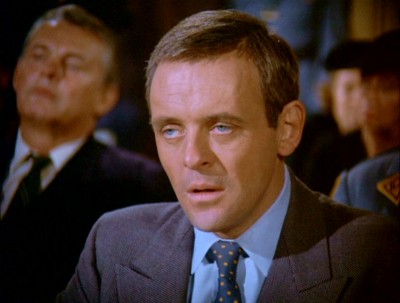
So, despite all the drawbacks in the script and direction, with that cast, we should at the very least still be okay to enjoy The Lindbergh Kidnapping Case from a performance level, right? Well.... A few of the veterans and relative newcomers certainly stand out here. Joseph Cotton steals most of his scenes as the eccentric, publicity-hungry Dr. Condon (Cotton walks a fine line here, making Condon seem sincere in his willingness to help Lindy, and gross in his delight in becoming a minor celebrity). Laurence Luckinbill and Keenan Wynn make a good duo of sharp, calculating politicos. Tony Roberts is straightforward and uncluttered as a New York detective doggedly tracing the ransom money. And Sian Barbara Allen (an early TV crush of mine when she was John Boy's girlfriend on The Waltons) is characteristically good in the one or two extended scenes she's given, showing Anne Morrow Lindbergh's quiet, abiding strength. Superlative character actor Martin Balsam, however, has little to do here other than standard courtroom attorney shtick. Cliff De Young, fairly resembling the real Lindy, has a briefly gripping scene where Kulik remains on his tortured, controlled face when he's identifying the body of his battered young son, but the rest of the time he's blanked out by the nonentity that is Lucky Lindy in this script.
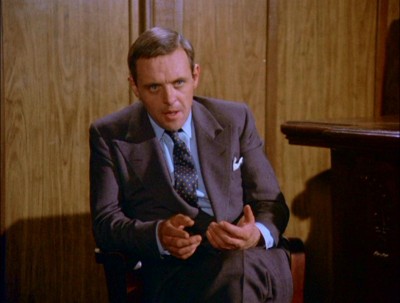
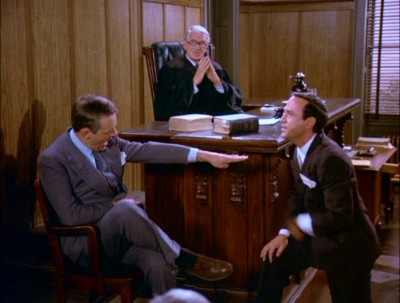
Which brings us to Hopkins, who won an Emmy for his portrayal of Bruno Hauptmann (and please don't email me and argue that that Emmy "proves" his performance is good here; the Emmys are like any other industry award in Hollywood: self-serving, self-stroking bullsh*t). At this point in his career, after blowing big screen stardom with two action duds, The Looking-Glass War and When Eight Bells Toll, Hopkins was living in Hollywood, alternating well-received TV projects in the U.K. and the U.S. like The Edwardians, War and Peace, QB VII and Victory at Entebbe, with more failed movie entries like Young Winston, The Girl from Petrovka, and Audrey Rose--a dispiriting career trajectory for the big-screen ambitious Hopkins that he would continue with numerous TV roles like Mayflower: The Pilgrims' Adventure, The Bunker, The Hunchback of Notre Dame and the deliciously awful Hollywood Wives, set against commercial misfires at the theatres like International Velvet, Magic, A Change of Seasons, and The Bounty (good thing Hannibal Lecter came along...). Certainly his Emmy win in The Lindbergh Kidnapping Case didn't hinder his getting assignments like A Bridge Too Far and The Elephant Man, but seen today, it's a lamentably "showy," even awful at times performance that puts his Emmy win into perspective (Americans actors love to stroke their inferiority complexes by honoring British performers). All of Hopkins' worst hambone traits are on display here, a veritable Hopkins Tic-Fest of eyeball-rolling, jaw-jutting, glaring/staring sessions, half-smiles to himself, and growling, explosive line readings, all topped off by a German accent that goes in and out with hilarious regularity. We learn nothing about what makes Hauptmann tick (the script's fault as much as Hopkins'), while we're laughing at classics like, "Evrrrrrrrrrrrybody vheeeelllzzzzz baaabyyycaaarigezzzzz!" (translation: "Everybody wheels baby carriages," and it stands right up there with Schwarzenegger's, "It's not a tumor!"). Just watch Hopkins begin to lose it for real when on-screen nemesis, David Spielberg (excellent here, as always), starts besting Hopkins in a screaming match on the witness stand, with Hopkins ad-libbing at one point for Spielberg to settle down so the scene can go back to him (Spielberg, to his credit, doesn't back down). I remember as a kid thinking Hopkins was mesmerizing as Bruno; watching him in The Lindbergh Kidnapping Case today, though, all I see are smoke and mirrors, and bells and whistles. It's a shallow, surface performance, more about the actor than the character, in a seemingly "big, important" MTV that's equally inconsequential.
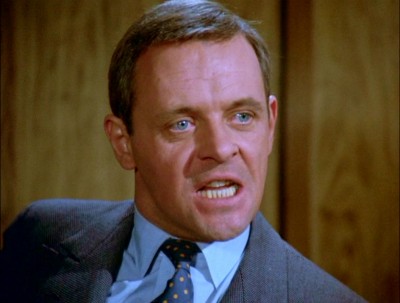
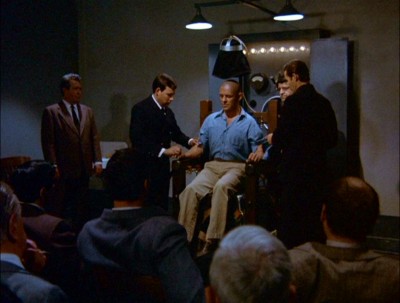
The DVD:
The Video:
The fullscreen, 1.37:1 transfer for The Lindbergh Kidnapping Case looks okay, with moderate grain, a sharpish image, somewhat dulled color, and expected screen imperfections.
The Audio:
The Dolby Digital English mono audio track is fine, with moderate-to-low hiss and a good re-recording level. No subtitles or closed-captions available.
The Extras:
No extras for The Lindbergh Kidnapping Case.
Final Thoughts:
Memory is a funny thing.... I've been looking forward to seeing The Lindbergh Kidnapping Case again for over thirty years, and now that I have...I want my 38 years back. An inconsequential, remarkably superficial recounting of the infamous Lindbergh kidnapping and murder, The Lindbergh Kidnapping Case has little to say, and says it poorly, with some misfired central performances, lax direction, and a facile, random script. Some good supporting turns might spur a rental--or if you're into bad Anthony Hopkins performances (how do you choose?)--but that's about it for The Lindbergh Kidnapping Case.
Paul Mavis is an internationally published movie and television historian, a member of the Online Film Critics Society, and the author of The Espionage Filmography.


|
| Popular Reviews |
| Sponsored Links |
|
|
| Sponsored Links |
|
|
| Release List | Reviews | Shop | Newsletter | Forum | DVD Giveaways | Blu-Ray | Advertise |
|
Copyright 2024 DVDTalk.com All Rights Reserved. Legal Info, Privacy Policy, Terms of Use,
Manage Preferences,
Your Privacy Choices | |||||||













